-
 Bitcoin
Bitcoin $94,890.4974
1.90% -
 Ethereum
Ethereum $1,802.6452
2.97% -
 Tether USDt
Tether USDt $1.0005
0.01% -
 XRP
XRP $2.1925
0.72% -
 BNB
BNB $602.7125
0.38% -
 Solana
Solana $151.7122
0.22% -
 USDC
USDC $0.9999
0.00% -
 Dogecoin
Dogecoin $0.1867
4.19% -
 Cardano
Cardano $0.7227
2.04% -
 TRON
TRON $0.2433
-0.11% -
 Sui
Sui $3.6217
9.21% -
 Chainlink
Chainlink $15.1335
1.92% -
 Avalanche
Avalanche $22.7201
3.68% -
 Stellar
Stellar $0.2899
5.12% -
 Shiba Inu
Shiba Inu $0.0...01464
6.34% -
 UNUS SED LEO
UNUS SED LEO $9.1367
-0.74% -
 Hedera
Hedera $0.1959
5.59% -
 Toncoin
Toncoin $3.2490
2.20% -
 Bitcoin Cash
Bitcoin Cash $372.8996
5.82% -
 Polkadot
Polkadot $4.3172
1.51% -
 Litecoin
Litecoin $87.8114
5.33% -
 Hyperliquid
Hyperliquid $18.4204
-0.57% -
 Dai
Dai $0.9999
-0.01% -
 Bitget Token
Bitget Token $4.4463
0.82% -
 Ethena USDe
Ethena USDe $0.9997
0.02% -
 Pi
Pi $0.6527
0.01% -
 Monero
Monero $228.9974
0.41% -
 Pepe
Pepe $0.0...09542
10.30% -
 Uniswap
Uniswap $5.9754
4.12% -
 Aptos
Aptos $5.5833
4.04%
Is it profitable to invest in currency exchanges?
Investing in currency exchanges can be profitable but requires careful evaluation of factors like trading fees, liquidity, security, and market trends to maximize profit potential while mitigating risks.
Jan 09, 2025 at 04:52 am
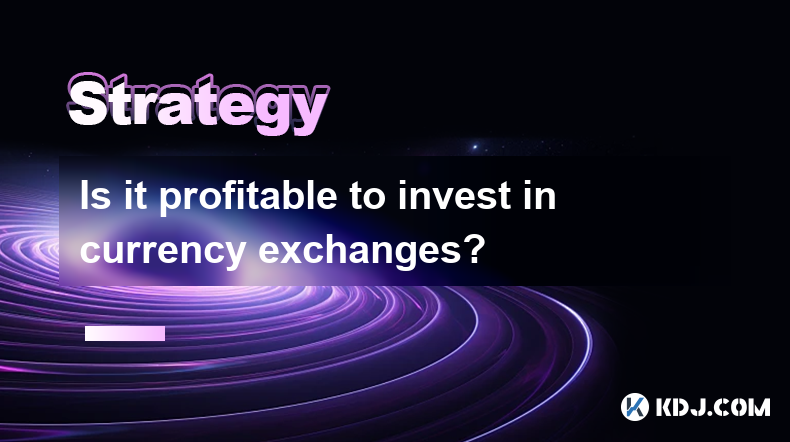
Is it Profitable to Invest in Currency Exchanges?
Key Points:
- Currency exchanges facilitate the trading of fiat and cryptocurrencies.
- Investing in currency exchanges offers diversification and potential returns.
- Due diligence and a comprehensive understanding of the market are crucial.
- Factors to consider include trading fees, liquidity, security measures, and regulatory compliance.
- Explore different types of exchanges, such as centralized, decentralized, and hybrid.
Steps to Evaluating the Profitability of Investing in Currency Exchanges:
1. Determine Trading Fees and Liquidity:
- Research the exchange's trading fees, including maker and taker fees, as they can impact profitability.
- Assess the liquidity of the exchange, which influences the ability to enter and exit trades efficiently.
2. Evaluate Security Measures:
- Verify the exchange's security measures, such as two-factor authentication, cold storage for assets, and insurance policies.
- Consider the exchange's track record and reputation in protecting user funds.
3. Examine Regulatory Compliance:
- Check if the exchange is registered with appropriate regulatory bodies and follows industry best practices.
- Regulations provide a level of oversight and protect investors from fraudulent activities.
4. Understand Exchange Types:
- Centralized Exchanges (CEXs): Operated by a single entity, offering a wide range of trading pairs and features. May have higher fees and limited anonymity.
- Decentralized Exchanges (DEXs): Non-custodial platforms where users trade directly with each other, offering greater decentralization and security, but may have lower liquidity.
- Hybrid Exchanges: Combine features of both CEXs and DEXs, offering a balance of liquidity, security, and flexibility.
5. Research Market Trends:
- Monitor cryptocurrency market trends, as fluctuations can impact trading activity and exchange performance.
- Analyze historical data and forecasts to make informed investment decisions.
FAQs on Investing in Currency Exchanges:
Q: Are all currency exchanges profitable?
A: Profitability depends on various factors such as trading fees, liquidity, security measures, and market conditions. Not all exchanges guarantee consistent profits.
Q: What are the risks of investing in currency exchanges?
A: Risks include market volatility, cyberattacks, regulatory changes, and potential exchange closures. Investors should carefully evaluate these risks before investing.
Q: How much can I earn from investing in currency exchanges?
A: Earnings vary widely depending on factors such as trading skills, market conditions, and the exchange used. Consistent profits require expertise and a thorough understanding of the market.
Q: Is it possible to lose money investing in currency exchanges?
A: Yes, it is possible to lose money due to market volatility, trading losses, or exchange closures. Investors should only invest what they can afford to lose.
Q: What should I look for when choosing an exchange?
A: Consider factors such as trading fees, liquidity, security measures, regulatory compliance, and customer support. Research different exchanges and compare their features to find the best fit for your needs.
Disclaimer:info@kdj.com
The information provided is not trading advice. kdj.com does not assume any responsibility for any investments made based on the information provided in this article. Cryptocurrencies are highly volatile and it is highly recommended that you invest with caution after thorough research!
If you believe that the content used on this website infringes your copyright, please contact us immediately (info@kdj.com) and we will delete it promptly.
- Cardano (ADA) Price Eyes a Massive Bull Run Amid Looming Supply Squeeze
- 2025-04-26 12:05:13
- Is the crypto market chasing noise, or finally ready to reward substance?
- 2025-04-26 12:05:13
- CoinFerenceX, the world's first decentralized Web3 conference, is back in Dubai on April 28, 2025
- 2025-04-26 12:00:26
- Optimism (OP) price prediction 2025-2031: Can OP reach $10?
- 2025-04-26 12:00:26
- Stacks (STX) Price Surges by 16% but Underlying Market Sentiment Suggests a Correction May Be on the Horizon
- 2025-04-26 11:55:13
- Circle firmly denies rumors suggesting it plans to apply for a US banking license
- 2025-04-26 11:55:13
Related knowledge

What does the surge in SOL's cross-chain bridge inflows represent?
Apr 25,2025 at 09:00am
The recent surge in SOL's cross-chain bridge inflows represents a significant trend within the cryptocurrency ecosystem, particularly for Solana (SOL). This phenomenon highlights increased activity and interest in moving assets from other blockchains to Solana, indicating growing confidence in its network and ecosystem. Cross-chain bridges are essential...
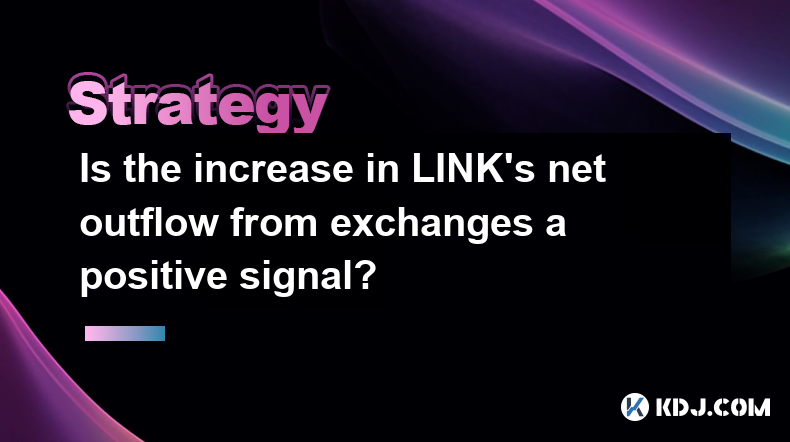
Is the increase in LINK's net outflow from exchanges a positive signal?
Apr 24,2025 at 02:35pm
The recent increase in LINK's net outflow from exchanges has sparked discussions within the cryptocurrency community about its implications for the token's future performance. LINK, the native token of the Chainlink decentralized oracle network, has seen a notable shift in its net outflow from exchanges, which many interpret as a positive signal. This a...

Is LTC's UTXO age distribution useful for judging buying and selling points?
Apr 23,2025 at 05:42pm
Is LTC's UTXO age distribution useful for judging buying and selling points? Understanding the UTXO (Unspent Transaction Output) age distribution of Litecoin (LTC) can provide valuable insights into the behavior of its holders and potentially help in making informed decisions about buying and selling points. The UTXO age distribution refers to the age o...
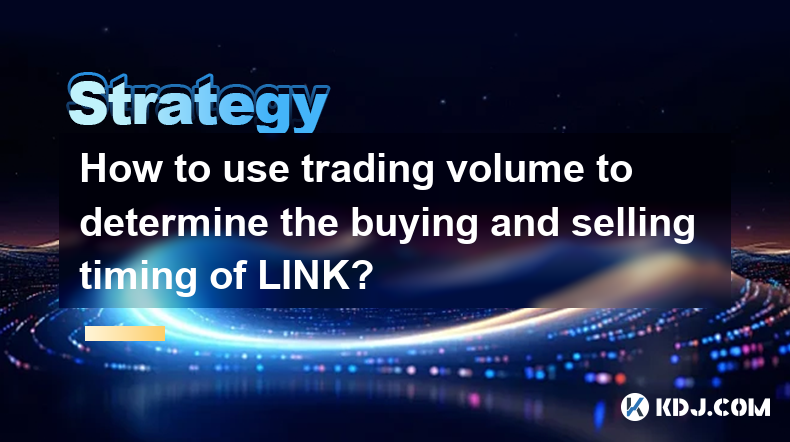
How to use trading volume to determine the buying and selling timing of LINK?
Apr 25,2025 at 02:07am
How to Use Trading Volume to Determine the Buying and Selling Timing of LINK? Trading volume is a crucial metric in the cryptocurrency market that can provide valuable insights into the buying and selling behavior of traders. When it comes to Chainlink (LINK), understanding how to analyze trading volume can help you make more informed decisions about wh...
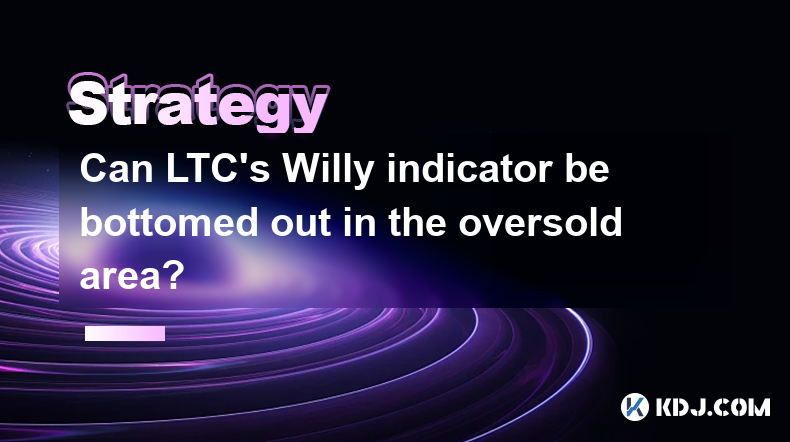
Can LTC's Willy indicator be bottomed out in the oversold area?
Apr 24,2025 at 01:43pm
Understanding the Willy IndicatorThe Willy indicator, also known as the Willy ratio, is a technical analysis tool used in the cryptocurrency market to gauge the sentiment of a particular asset, in this case, Litecoin (LTC). It is calculated by dividing the total trading volume of an asset by its market capitalization. The resulting ratio helps traders u...
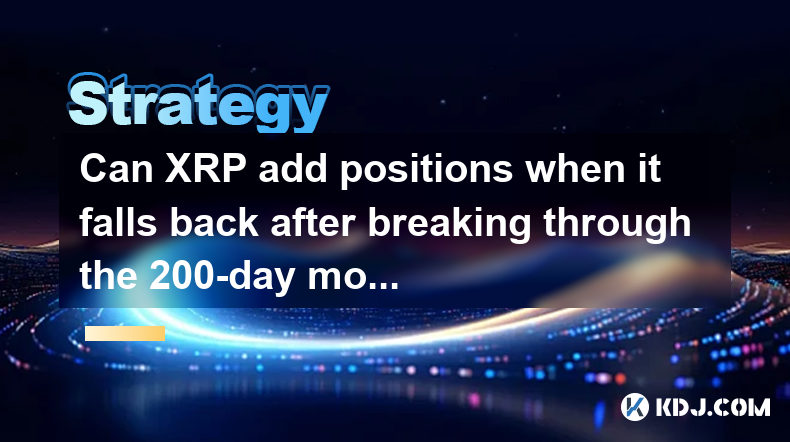
Can XRP add positions when it falls back after breaking through the 200-day moving average?
Apr 25,2025 at 04:49pm
The question of whether to add positions to XRP after it breaks through the 200-day moving average and subsequently falls back is a common dilemma faced by many cryptocurrency traders. The 200-day moving average is a widely recognized technical indicator used to assess the long-term trend of an asset. When XRP breaks above this level, it is often seen a...

What does the surge in SOL's cross-chain bridge inflows represent?
Apr 25,2025 at 09:00am
The recent surge in SOL's cross-chain bridge inflows represents a significant trend within the cryptocurrency ecosystem, particularly for Solana (SOL). This phenomenon highlights increased activity and interest in moving assets from other blockchains to Solana, indicating growing confidence in its network and ecosystem. Cross-chain bridges are essential...

Is the increase in LINK's net outflow from exchanges a positive signal?
Apr 24,2025 at 02:35pm
The recent increase in LINK's net outflow from exchanges has sparked discussions within the cryptocurrency community about its implications for the token's future performance. LINK, the native token of the Chainlink decentralized oracle network, has seen a notable shift in its net outflow from exchanges, which many interpret as a positive signal. This a...

Is LTC's UTXO age distribution useful for judging buying and selling points?
Apr 23,2025 at 05:42pm
Is LTC's UTXO age distribution useful for judging buying and selling points? Understanding the UTXO (Unspent Transaction Output) age distribution of Litecoin (LTC) can provide valuable insights into the behavior of its holders and potentially help in making informed decisions about buying and selling points. The UTXO age distribution refers to the age o...

How to use trading volume to determine the buying and selling timing of LINK?
Apr 25,2025 at 02:07am
How to Use Trading Volume to Determine the Buying and Selling Timing of LINK? Trading volume is a crucial metric in the cryptocurrency market that can provide valuable insights into the buying and selling behavior of traders. When it comes to Chainlink (LINK), understanding how to analyze trading volume can help you make more informed decisions about wh...

Can LTC's Willy indicator be bottomed out in the oversold area?
Apr 24,2025 at 01:43pm
Understanding the Willy IndicatorThe Willy indicator, also known as the Willy ratio, is a technical analysis tool used in the cryptocurrency market to gauge the sentiment of a particular asset, in this case, Litecoin (LTC). It is calculated by dividing the total trading volume of an asset by its market capitalization. The resulting ratio helps traders u...

Can XRP add positions when it falls back after breaking through the 200-day moving average?
Apr 25,2025 at 04:49pm
The question of whether to add positions to XRP after it breaks through the 200-day moving average and subsequently falls back is a common dilemma faced by many cryptocurrency traders. The 200-day moving average is a widely recognized technical indicator used to assess the long-term trend of an asset. When XRP breaks above this level, it is often seen a...
See all articles






















![Trading is to follow [Review Video] Gold Bitcoin Crude Oil Orders Make Profits! Trading is to follow [Review Video] Gold Bitcoin Crude Oil Orders Make Profits!](/uploads/2025/04/26/cryptocurrencies-news/videos/trading-follow-review-video-gold-bitcoin-crude-oil-profits/image-1.webp)































































